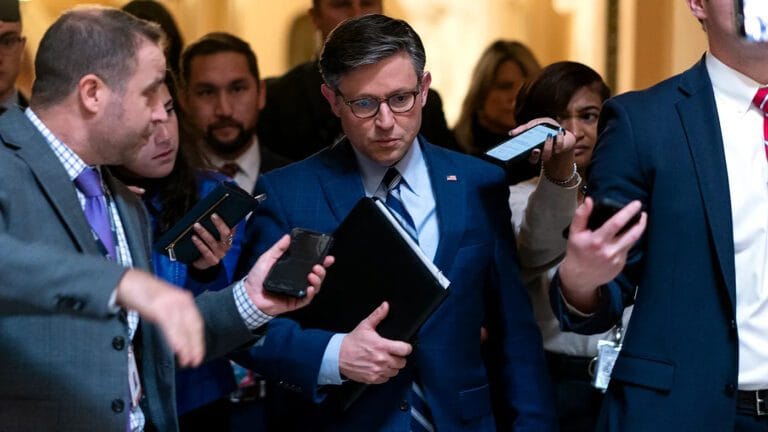🎧 Listen to This Article
A new report from the Congressional Budget Office (CBO) has thrown cold water on the Republican Party’s claim that extending the Trump-era tax cuts would be cost-free, revealing the financial reality behind the GOP’s proposed measures.
Republicans, with a trifecta of power, are pushing for a significant extension of tax cuts that disproportionately benefit the wealthiest Americans. These cuts, estimated to cost $4 trillion over the next decade, would drive up the national debt ratio by 50%. In fact, the top 0.1% of earners would receive an average tax break of $278,000, while the bottom 80% of households would see little to no change, with some even facing higher tax bills.
While Republicans continue to champion these cuts as economically beneficial, they face significant hurdles in securing funding for them. Initially, the tax cuts passed in 2017 were set to expire by 2025. However, the GOP is now proposing to extend these cuts without fully accounting for their long-term costs, adopting a controversial strategy: claiming the tax cuts are “free.”
How did we arrive at this point? The 2017 tax cuts, passed under the Trump administration using budget reconciliation, are set to expire at the end of 2025. Now, Republicans are trying to make these tax cuts permanent without properly addressing the financial impact.
Here’s the problem: The proposed cuts would cost $4 trillion over the next decade. Republicans have no viable plan to offset this amount, and even their proposed budget adjustments—such as slashing Medicaid and reducing food assistance—are insufficient to prevent massive deficits. Still, the GOP is arguing that since the tax cuts are already in effect, continuing them doesn’t count as a new cost. In essence, they’re claiming that the cost of extending the cuts is “free.”
This argument, however, is fundamentally flawed. As the CBO points out, continuing the tax cuts without accounting for the costs would significantly increase the national debt. By 2054, the national debt would reach 214% of GDP, 47 percentage points higher than if the cuts were not extended. Moreover, extending the cuts would harm the economy and push borrowing costs higher for consumers.
Despite the GOP’s claims, the CBO’s report makes it clear that no costs are “free” when it comes to the federal budget. The Treasury Department would need to finance these tax cuts through new debt, further expanding the deficit.
The CBO’s assessment is likely to complicate Republicans’ efforts to pass the tax cut extensions under budget reconciliation rules, which require any new costs to be accounted for beyond the first 10 years. Senate parliamentarian guidance is crucial here—she will likely not approve the GOP’s attempt to declare the cuts cost-free.
In the coming weeks, the Senate parliamentarian will issue her ruling. If she rejects the GOP’s plan, Republicans will have to decide how to proceed. They can either accept the ruling, challenge it, or even fire the parliamentarian and push through a new process. The final decision will reveal whether the GOP’s tax plan is grounded in reality—or whether it’s an elaborate attempt to protect the wealthiest Americans at the expense of the nation’s fiscal health.
For further details, clarification, contributions, or any concerns regarding this article, please contact us at editorial@tax.news. We value your feedback and are committed to providing accurate and timely information. Please note that our privacy policy will handle all inquiries



